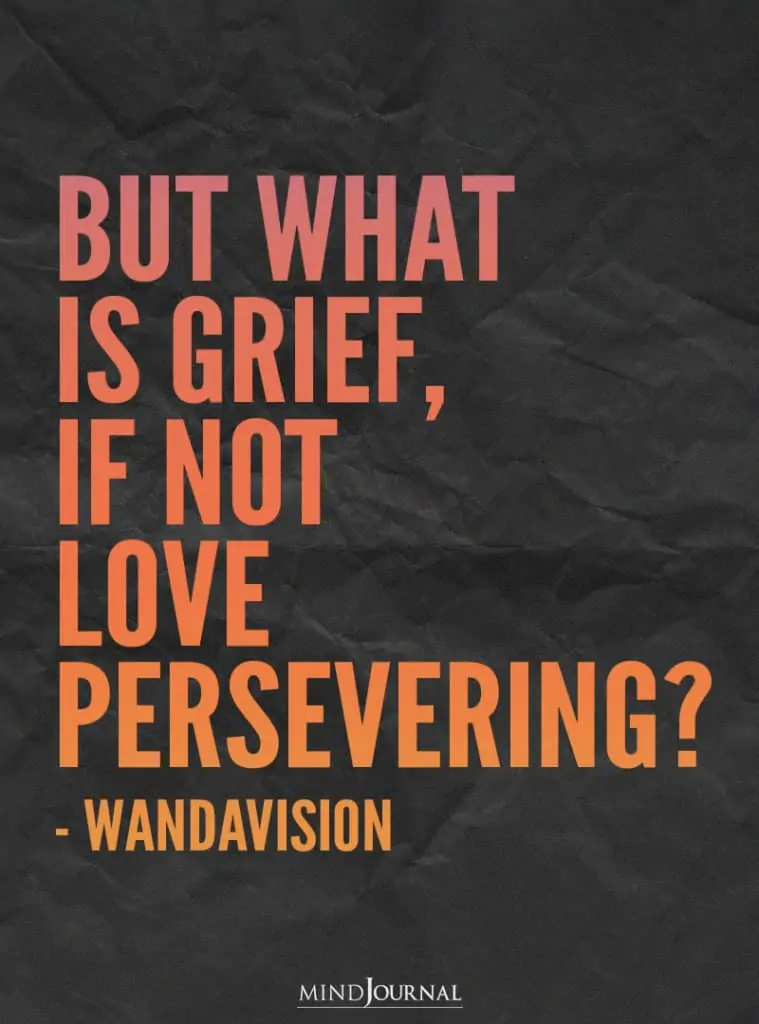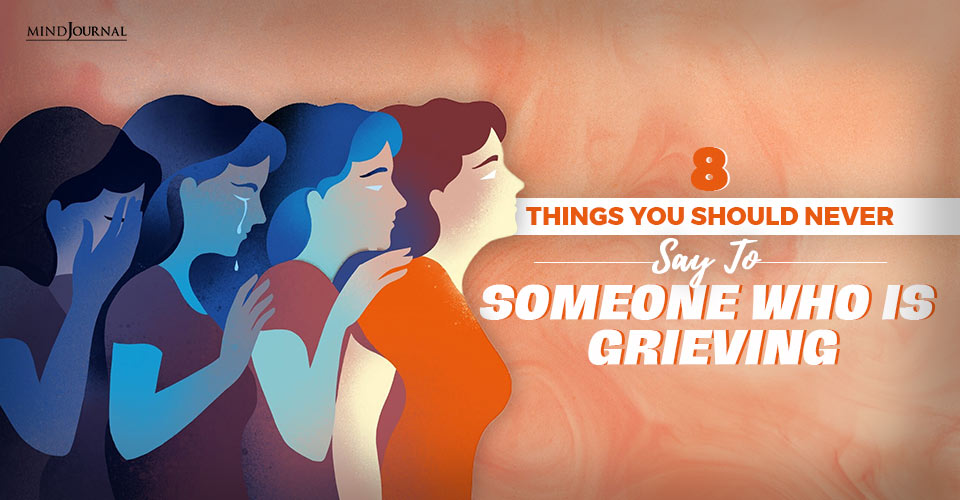Losing a loved one is one of the hardest and most painful things a human being can ever go through. Even if you were prepared for their passing, when it actually does happen, it feels like the wind has been knocked out from you and you’re falling into a dark, unending abyss. To say that grief is heartbreaking is an understatement. Even though grieving your loved ones is necessary for healing, the journey is not exactly a very easy one, is it?
When someone close to you is grieving, it can be hard to see them in pain, and naturally, you would want to make them feel better. But sometimes, even though your intentions might be pure, certain statements can end up making them feel worse (even if they are not hurtful statements, per se).
When it comes to comforting and supporting a grieving person, always keep these three things in mind – showing empathy, being a good listener, and giving them the love and support they need to heal from their pain, which also means avoiding making certain statements.
8 Things You Should Never Say To Someone Who Is Grieving
1. “At least they are not suffering anymore, and are in a better place now.”
Even though you might have their best interests at heart, this one statement can break their heart even more. When you lose a loved one, all you care about is the fact that they are not there anymore; it’s an entirely emotional thing, and logic and rationality never help. This statement can also make them feel as if you are taking their grief casually, and minimizing their pain.
So instead of reminding them of the person who is not there anymore, focus on how they are feeling. They might be glad that their loved one is not suffering anymore, but the pain of losing them is still fresh. Try to be there for them by understanding what THEY are going through and give them a shoulder to cry on if needed.
Related: Understanding Disenfranchised Grief: When No One Understands Your Loss
2. “I can understand how you might be feeling.”
This statement might seem harmless and supportive, but sometimes it can come across as insensitive and tone-deaf. Everyone’s process of grieving is different, and it’s not always possible to know exactly how they are feeling when they are in pain. So making a statement like this can make them feel invalidated and patronized.
If you want to actually show support then instead of deciding how they feel, let them talk to you about their real feelings. Let them express the emotions they’re going through because this will not just help them heal, it will also make them appreciate your efforts more.
3. “It’s amazing how well you’re handling this.”
Even if they seem alright from the outside, chances are they are just putting on a brave face to deal with their grief. On top of that, if you appreciate them for handling everything perfectly, it might make them think that their grieving is not that big of a deal, and they will end up suppressing their true feelings. Until and unless you know for sure, that they are actually getting better at dealing with the pain, refrain from making statements like this.
Acknowledge that they might be in a lot of pain, and let them know that it’s okay. Let them grieve the way they want to and give them the time, space, and understanding to come to terms with the loss, no matter how long it takes. Be supportive, not patronizing.

4. “How are you holding up?”
Again, this is one of those really harmless statements that everyone asks the grieving person. But what you don’t see is how the aggrieved person is interpreting this seemingly harmless question.
When you’re asking someone this question, chances are they’re hearing something like, ‘I really, really hope you’re doing okay because I don’t really know what to do to make you feel better.” This leads to them bottling up their true feelings, and behaving as if they’re fine so as not to make you feel uncomfortable.
Instead, ask them this – “It must be very hard for you right now. Please tell me how I can help.”. When you speak to them like this, it makes them feel confident enough to open up in front of you about how they are truly feeling. They don’t feel like a burden on you, rather they can count on you for support which makes it a bit easier for them to handle their grief.
Related: Behind The Veil Of Grief
5. “Give it some time, because time heals everything.”
This is one of the worst and most insensitive things you can ever tell to a grieving person. When someone is grieving, all they can think about is the person they have lost forever. So telling them that time will make everything better, is not just minimizing and belittling their pain, it’s also giving off the message that healing from something like this is easy.
If you genuinely want to show your support to a grieving person, don’t make them feel like they need to rush their healing. Be there for them, and give them enough empathy and support so that they can feel what they want to feel, and grieve the way they want to grieve.
6. “It’s okay, you can…”
If someone has lost their spouse, and if you’re suggesting that they can get remarried after some time (even if you have their best interests at heart), it will actually make them feel worse. You know why? Because to them, it sounds like you’re implying that the one they lost is replaceable, and the grief they are feeling is not that big of a deal.
Instead of giving suggestions like this, focus on being an attentive listener, as they will appreciate this much more. When someone is grieving, thinking about the future, or thinking about having a future with someone else can be overwhelmingly painful. Help them deal with their grief by taking one step at a time, and assuring them that you’ll always be there for them.
7. “You have to be strong for your family.”
This one-liner is notoriously difficult to endure when someone is grieving, but unfortunately, most people don’t understand how horrible it feels to get this advice. When you tell someone to be strong for their family and keep their emotions in check, you’re giving them the message that their pain doesn’t matter as much as others. They should be strong for others at the cost of their own grief. This makes it difficult for them to heal, and can even prove to be a traumatic experience for them.
Never make anyone feel as if they need to suppress their emotions, just because they have other people relying on them. Just like others, their feelings matter too and are equally valuable. If they don’t grieve and feel what they need to feel, they will never be okay and the loss and pain will haunt them for the rest of their lives. Being strong for your family doesn’t mean you need to sacrifice your own healing.
Related: 10 Lessons We Can Learn From Grief
8. Never bothering to even talk to them.
Despite knowing that someone close to you has lost a loved one and is grieving, and you still don’t reach out to them, then that’s insensitive and horrible on another level. Losing a loved one is a heart-wrenching experience, and if you don’t stand by them during such a tumultuous time, you will end up hurting them even more.
Meet up with them and offer your condolences. Reminisce about the person who has passed away and share the wonderful memories both of you have with them. This will not just help them remember the departed soul fondly, but will also make them feel a little less alone and a lot more understood.
Helping someone heal is one of the most powerful and best things you can do for them, but only as long as you do it right. When you are comforting a grieving person, avoid saying things like these, and try to make them feel loved, supported, and understood. Because sometimes, the best things you can do for someone are really that simple.









Leave a Reply
You must be logged in to post a comment.